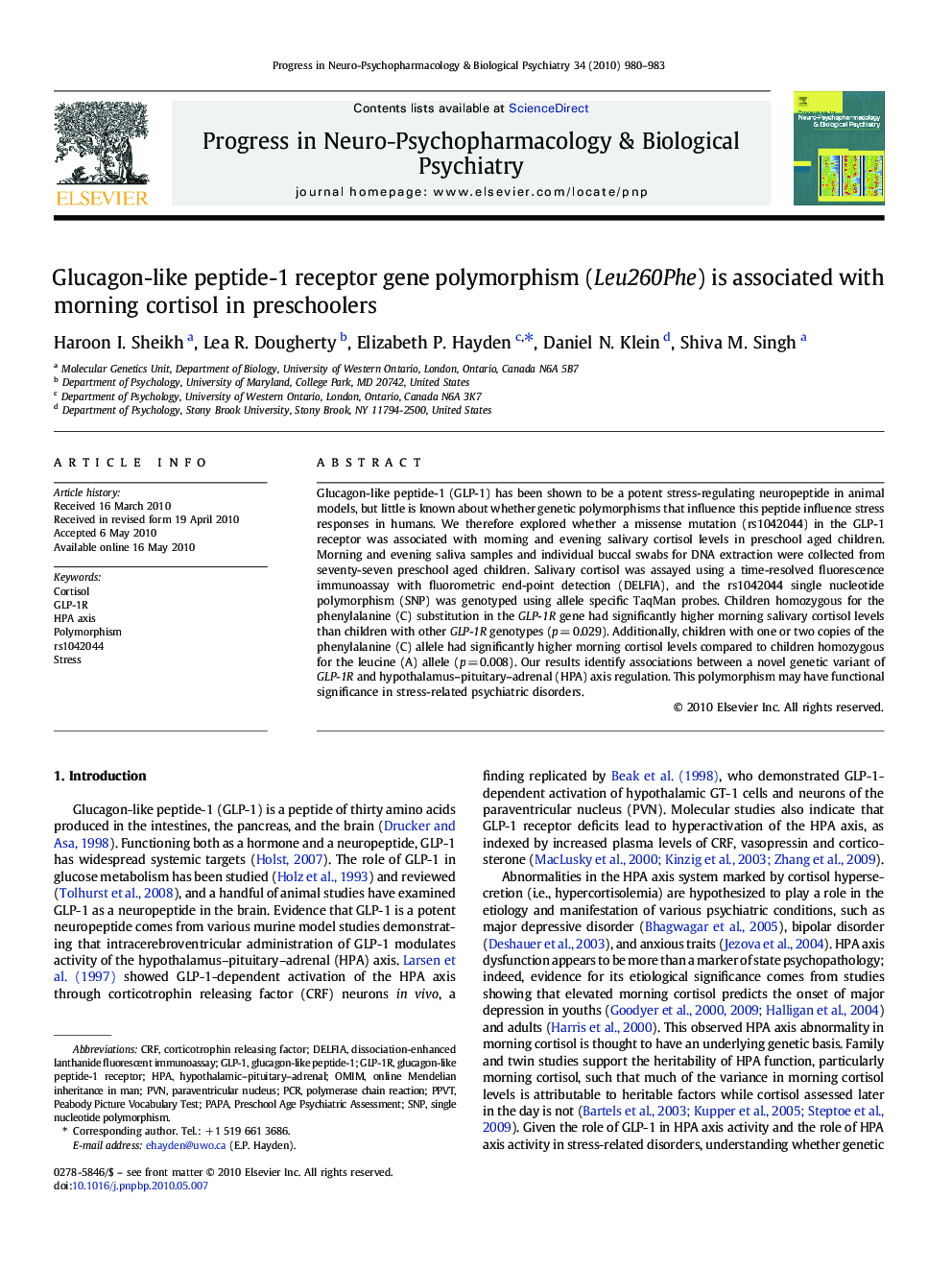| Article ID | Journal | Published Year | Pages | File Type |
|---|---|---|---|---|
| 2565378 | Progress in Neuro-Psychopharmacology and Biological Psychiatry | 2010 | 4 Pages |
Abstract
Glucagon-like peptide-1 (GLP-1) has been shown to be a potent stress-regulating neuropeptide in animal models, but little is known about whether genetic polymorphisms that influence this peptide influence stress responses in humans. We therefore explored whether a missense mutation (rs1042044) in the GLP-1 receptor was associated with morning and evening salivary cortisol levels in preschool aged children. Morning and evening saliva samples and individual buccal swabs for DNA extraction were collected from seventy-seven preschool aged children. Salivary cortisol was assayed using a time-resolved fluorescence immunoassay with fluorometric end-point detection (DELFIA), and the rs1042044 single nucleotide polymorphism (SNP) was genotyped using allele specific TaqMan probes. Children homozygous for the phenylalanine (C) substitution in the GLP-1R gene had significantly higher morning salivary cortisol levels than children with other GLP-1R genotypes (p = 0.029). Additionally, children with one or two copies of the phenylalanine (C) allele had significantly higher morning cortisol levels compared to children homozygous for the leucine (A) allele (p = 0.008). Our results identify associations between a novel genetic variant of GLP-1R and hypothalamus-pituitary-adrenal (HPA) axis regulation. This polymorphism may have functional significance in stress-related psychiatric disorders.
Keywords
DELFIAOMIMPPVTGLP-1RPAPACRFGLP-1StressPeabody Picture Vocabulary Testcorticotrophin releasing factorPVNHPA axisHPAparaventricular nucleushypothalamic–pituitary–adrenalpolymerase chain reactionPCROnline Mendelian Inheritance in ManPolymorphismSingle nucleotide polymorphismglucagon-like peptide-1SNPcortisolglucagon-like peptide-1 receptor
Related Topics
Life Sciences
Neuroscience
Biological Psychiatry
Authors
Haroon I. Sheikh, Lea R. Dougherty, Elizabeth P. Hayden, Daniel N. Klein, Shiva M. Singh,
